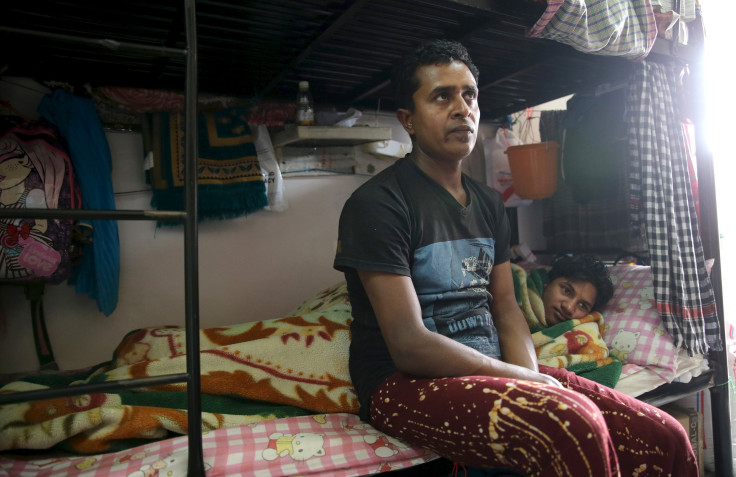BBC Journalists Arrested While Investigating Migrant Labor In Qatar

The BBC has demanded an explanation from Qatar for an incident where its reporters were detained for two days while investigating the conditions of migrant workers brought in to work on infrastructure projects ahead of the 2022 FIFA World Cup.
The decision by FIFA, world soccer's governing body, to allow Qatar to host the tournament in 2022 has been mired in various controversies, ranging from the practicality of holding a soccer tournament at the height of the Persian Gulf summer to the treatment of millions of migrant workers by the oil-rich nation, which is working to prepare for one of the sport's biggest events. Four BBC reporters had been invited by the Qatari prime minister’s office to an official tour of the accommodation for migrant laborers, but they were arrested by security services in early May while conducting additional investigations.
"A dozen security officers frisked us in the street, shouting at us when we tried to talk. They took away our equipment and hard drives and drove us to their headquarters." BBC correspondent Mark Lobel wrote in an article Monday.
The journalists were reportedly jailed and interrogated for two days before being released without any charges. During the investigation, authorities revealed that they had been tailing them for some time. “They had actually photographed my every move since I arrived,” Lobel said. Lobel added they were never “accused of anything,” but their interrogation had been conducted in a “hostile” manner.
“This is not Disneyland. You can't stick your camera anywhere," one of the interrogators reportedly shouted at Lobel.
The team was released after two nights, but were prevented from leaving the country until some time later, and the BBC said that their equipment is still being held.
In a statement, cited in Lobel's article, Qatar’s government said the BBC team had been held because they had ignored the organized tour path and trespassed on private property, "which is against the law in Qatar just as it is in most countries."
The BBC refuted the allegations in a response. “We are pleased that the BBC team has been released but we deplore the fact that they were detained in the first place. Their presence in Qatar was no secret and they were engaged in a perfectly proper piece of journalism,” it said in a statement.
Investigations into the working and living conditions of Qatar’s migrant laborers have been met with arrests before. A team from West German Broadcasting was arrested earlier in May while trying to report on migrant workers’ living conditions. They were held for a day and then prevented from leaving the country for some time after their release.
The conditions of Qatar’s migrant workers have drawn international condemnation, after a report commissioned by the Qatari government found that almost 1,000 migrants had died on construction sites in 2012 and 2013.
Sharan Burrow, general secretary for the International Trade Union Confederation, a labor group, said on Monday: "Qatar is a slave state. The discrimination, the racism, the denial of rights for 1.4 million migrant workers adds up to apartheid and a model of employment that is simply slavery.
"There is a conspiracy of silence by governments and major sporting and cultural institutions that allow it to continue. The world must not be duped by Qatar's empty promises of reform," she added, according to Channel 4, a British network.
© Copyright IBTimes 2025. All rights reserved.





















